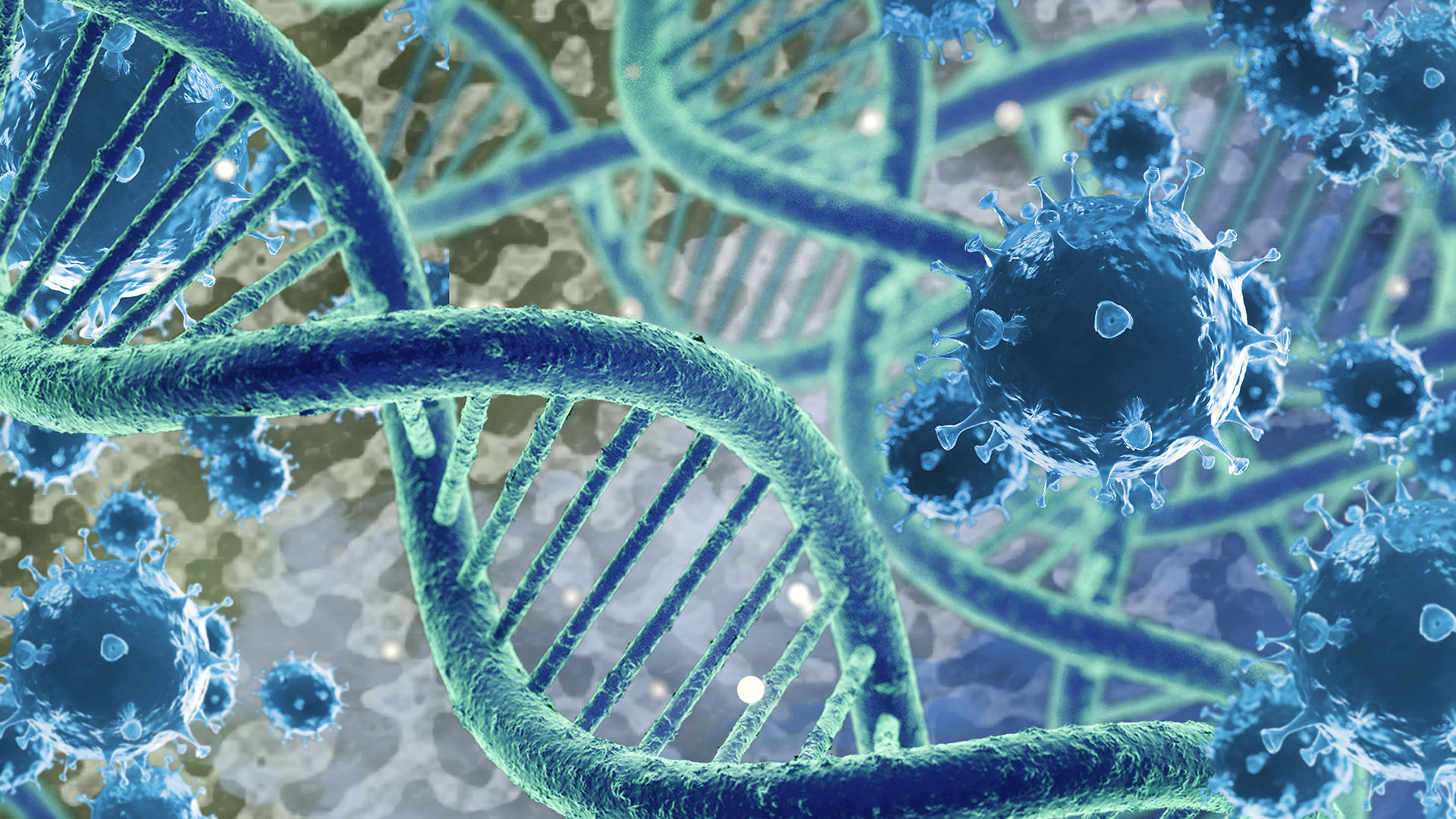
Where COVID-19 is concerned, we aren’t all created equal. Some of us have never experienced a single symptom, while others have become seriously ill—variations that may be explained by genetic factors. Microbiologist and infectious disease specialist Donald Vinh at the Research Institute of the McGill University Health Centre (RI-MUHC) has found that a genetic mutation may interfere with the activity of type 1 interferons, which stimulate the immune system and make it more difficult for viruses to reproduce.
Individuals who have the genetic defect that impedes their interferon production can’t effectively defend themselves against the SARS-CoV-2 virus. In collaboration with the COVID Human Genetic Effort consortium, Dr. Vinh analyzed blood samples from people who were hospitalized for COVID-19 to identify the genes responsible for the immune deficiency. The team then compared the samples with blood taken from patients who were infected but experienced only mild symptoms. A total of 13 genes and their variants were targeted. Certain mutations in these genes are linked to the most severe cases of influenza. A small percentage of the patients in hospital carry the variants, which affect their production of type 1 interferons and thus made them more vulnerable to COVID-19.
Pinpointing the genes may help identify at-risk individuals earlier. Interferon drugs are currently available to patients with multiple sclerosis and certain types of cancer and prescribing them at the onset of an infection could stop the virus from progressing, making people who carry the mutation less likely to develop a severe form of the virus.
Reference:
